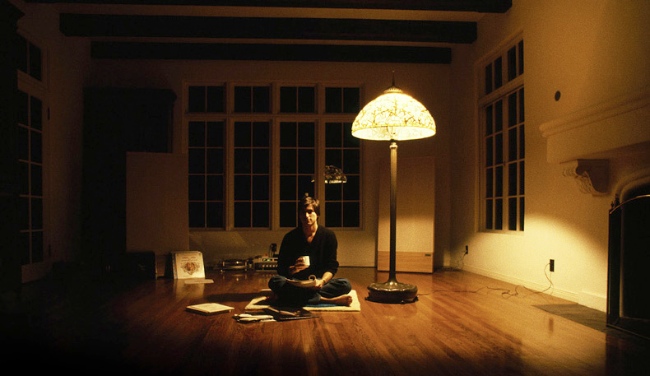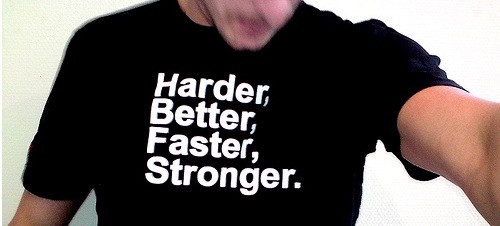
I can’t seem to find the exact clip I want online, but there’s an episode of the Simpsons where Homer eats a chilli pepper and hallucinates. He eats it at the Springfield fair where Otto has hippy-like booth encouraging people to “Simplify, man…”
It’s amusing because we’ve all come across the stereotype of the zealot who wants everyone else to live their lifestyle. They sing its praises and assume that as it’s a lifestyle they enjoy and value that it’s both more appropriate and morally superior to others. In the Simpsons clip it’s a lifestyle defined by the mantra ‘simplify.’ What I’m interested in this blog post – and, in fact, this week – is not merely the ambiguous call to simplify one’s lifestyle, although what I’m going to do could be seen to be a constituent part of that. I’m going to spend a week divesting.
The best definition of ‘divest’ that I’ve found comes from Wiktionary:
To strip, deprive or dispossess oneself of something (such as a right, passion, privilege or prejudice).
What prompted this?
I subscribe to a number of podcasts that I listen to whilst driving. One of these is a Radio 4 programme called Beyond Belief. I caught the end of it when it was broadcast live and then listened to the podcast on my way to the National Christian Football Festival the weekend before last. This particular programme was about poverty and whether or not, especially in this time of recession, it could be seen as a good thing. I was particularly struck by what the Jainist monk had to say.
As my wife will attest I have, at several times during our marriage, talked of ‘getting rid of everything’ as I felt it was weighing me down. The Jainist spoke about this directly, and mentioned a poem [find poem] about a prisoner locked in a cage. This prisoner pleaded to his captors now and again. However, his pleading was not to be released from the cage, but simply to have a newer and shinier one. The Jainist likened this to being in the thrall of collecting material objects and wealth.
After the programme, and unusually for me as I like my music, I spent the rest of the journey in silence, contemplating. I reflected upon my new job, my Dad being half-way across the world, and my wife’s accusative statement the other day that all my son sees me do is ‘go on the computer.’ I realised that there’s stuff getting in the way of that which is important. I need to get rid of that stuff.
Why are you telling me this?
It would, of course, be quite possible to ‘divest’ quietly and with only my immediate family knowing about it. After all, as Jesus said, we should not let our left hand know what our right hand is doing. Am I showing off or attempting to garner praise?
Not at all. There’s three reasons why I want to document my actions and the thoughts behind them:
- Sharing what I’m thinking and what I’m up to comes naturally to me.
- I’m human and therefore weak. I may not actually go through with it unless I’m accountable to someone or something.
- Perhaps you or someone you know wants to do something similar. This may give you ideas or lend support.
This week, therefore, I’ll be writing blog posts focusing on the following:
The final blog post of the week will be my reflections on whether it’s all gone to plan!
Are you weird?
I expect some of you reading this will assume that I’ve had some kind of re-religious conversion, especially given the references above. That’s not the case. This is purely a secular decision to reclaim some mental and physical space.
Some might think that I’ve turned into a Luddite. Far from it! It’s hardly likely given my new official job title is ‘Director of E-Learning.’ There’s a difference between recognising the appropriate use of technology and being the equivalent of a dog chasing shiny cars.
Others may consider that this is simply a fancy way of saying I’ve got too much stuff in my house and it’s time for a clear-out. Actually, the opposite is true, actually. We’ve moved house recently to a larger property. Compared to others, our house looks quite spartan.
Conclusion
Have you gone through or thought about something similar to this? If so, I’d like to hear about your experiences. Again, I’d like to point out that I’m not doing this for the back-slapping or to be praised. It, like many things I do, is an experiment. I hope it pays off!



